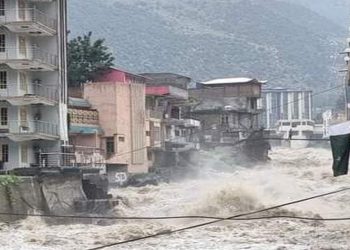Pakistan’s fate once again hangs in the balance as the Financial Action Task Force (FATF) holds its plenary session. The bigger question on everyone’s mind remains whether Pakistan will be removed from the grey list or face sanctions.
Pakistan has made huge strides to pass FATF-related laws which created a ruckus in parliament marred by clashes with the opposition. We were handed a 27-point action plan to be implemented but the deadline was extended on numerous occasions and recently due to the coronavirus pandemic.
The global watchdog had tasked the government to passed legislation and take action to curb money laundering and terror financing. It has been seen that Pakistan has now fallen behind and has not complied with six points on the action plan. This implies that Pakistan might remain on the grey list until the full action plan is not implemented.
It is now reported that the country will succeed in exiting the FATF’s grey list by June next year. The only solace is that Pakistan has avoided being blacklisted and is making progress on the remaining six points which relate to terror financing. Nevertheless, this could be frustrating as the nation’s economic revival strongly depends on it.
Pakistan cannot avoid remaining on the grey list as it requires foreign investment to improve the financial situation and pay debts. We still need to improve the weaknesses in our AML/CTF law which requires harsh decisions and a crackdown on many outfits. There could be intense backlash but this is essential as the nation’s future is at stake.
Pakistan needed 12 votes to exit the grey list and has assurances from China, Turkey and Malaysia. The government should have expedited its diplomatic efforts particularly with the European Union and Gulf countries before the plenary session to avoid any adverse situation.
The repercussion of the blacklist could be severe as the entire economy would collapse and there will be a massive fall in the rupee, and we would in the same league as countries such as North Korea and Iran. We have been in this situation before and now the plenary meeting is being held virtually. We need to get beyond this and move on towards economic development.



























